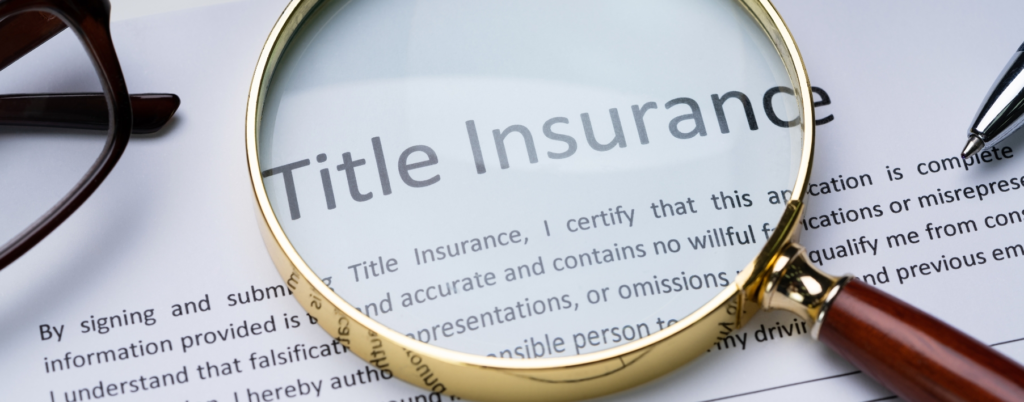Why You Need It and What It Actually Covers

When you’re buying a home, you’ll encounter many types of insurance – homeowner’s, flood, PMI – but one that often confuses buyers is title insurance. Unlike other insurance policies that protect against future events, title insurance protects against problems that already exist but haven’t been discovered yet.
What Is Title Insurance?
Title insurance is a policy that protects property owners and lenders against financial loss from defects in a property’s title or ownership history. Think of it as a safety net that ensures you truly own what you think you’re buying.
When you purchase property, you’re not just buying the physical structure and land – you’re buying the legal right to own it. Title insurance verifies this right and protects you if someone challenges your ownership later.
Why Do You Need Title Insurance?
Hidden Problems Can Surface Years Later
Even the most thorough title search can miss issues buried in public records. Problems like forged signatures, undisclosed heirs, or clerical errors can emerge months or years after your purchase, potentially threatening your ownership.
Lender Requirements
If you’re getting a mortgage, your lender will require lender’s title insurance to protect their investment. However, this only covers the lender – you’ll need separate owner’s title insurance to protect yourself.
One-Time Cost, Lifetime Protection
Unlike other insurance policies with monthly premiums, title insurance requires only a single payment at closing and protects you for as long as you own the property.
What Title Insurance Actually Covers
Ownership Disputes
If someone claims they have a legal right to your property – perhaps a previous owner’s heir who wasn’t included in the sale – title insurance will defend your ownership and cover legal costs.
Liens and Encumbrances
Unpaid taxes, contractor liens, or other debts attached to the property that weren’t discovered during the title search are covered.
Fraud and Forgery
If previous deeds were forged or fraudulent, title insurance protects you from losing your property or facing expensive legal battles.
Survey and Boundary Issues
Problems with property boundaries, easements, or survey errors that affect your ownership rights are typically covered.
Recording Errors
Mistakes in public records, such as incorrect property descriptions or filing errors, fall under title insurance protection.
What Title Insurance Doesn’t Cover
Future Issues
Title insurance only covers problems that existed before your purchase date. Issues that arise after you own the property aren’t covered.
Known Problems
Any title defects disclosed before closing are excluded from coverage.
Environmental Issues
Zoning violations, environmental hazards, or building code violations typically aren’t covered by standard title insurance.
Physical Property Damage
Title insurance doesn’t cover damage to the actual structure or land – that’s what homeowner’s insurance is for.
Owner’s vs. Lender’s Title Insurance
Lender’s Policy protects the mortgage company’s interest in the property up to the loan amount. As you pay down your mortgage, the coverage decreases.
Owner’s Policy protects your equity in the property for the full purchase price and remains in effect as long as you or your heirs have an interest in the property.
The Bottom Line
Title insurance might seem like just another closing cost, but it’s actually one of the most important protections you can have as a property owner. For a one-time fee – typically 0.5% to 1% of the purchase price – you get peace of mind knowing your ownership is protected against hidden defects that could otherwise cost you thousands in legal fees or, worst case, your entire investment.
While you can’t predict what title issues might surface, you can protect yourself from their financial impact. When it comes to the largest investment most people ever make, title insurance isn’t just recommended – it’s essential.

